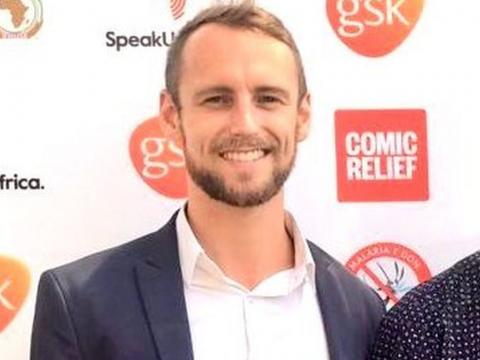By Kemo Cham
The private sector is crucial in the efforts to end malaria, a member of the Pan-African campaign - ‘Zero Malaria Starts With Me (ZMSWM)’ - has said, urging the Sierra Leone government to turn towards its private sector partners.
James Wallen, the Malaria Programme Officer for Speak Up Africa, a leading member of the global anti-malaria crusade, said private sector was meant to be a major part of the fight against the parasitic disease, yet in Sierra Leone it hasn’t been adequately engaged.
Wallen told Politico that the private sector could be not just a source of resources in the form of contributions from individual companies, but that it could also serve a reliable means of fund raising through established Funds or Foundations.
“Private sector engagement is a key part of the Zero Malaria Starts With Me campaign internationally. Private sector creates partnership with campaigners and provides funds for them to implement these projects,” Wallen said.
Malaria is the parasitic disease that is caused by a plasmodium and is transmitted by infected mosquitos.
According to the World Health organization (WHO), malaria is a major global killer disease, with the developing world accounting for the highest burden. The WHO Africa Region accounted for 93% of all malaria cases in 2018 (228million) and 94% of deaths (405, 000), according to the most recent World Malaria Report released in December 2019.
Sierra Leone has a 40 percent national malaria prevalence rate, which means four in every 10 people is infected with the disease annually, making it a malaria endemic nation. Malaria, which is the leading cause of morbidity and mortality among children in the country, is a major fueling factor of its high maternal and infant deaths.
Sierra Leone joined the continental campaign to eliminate malaria in 2018, when the government signed the African Union pact earlier agreed by heads of state of member countries.
The services of Speak Up Africa were hired to help provide technical guidance to the National Malaria Control Programme (NMCP) of the Ministry of Health and Sanitation (MoHS).
Speak Up Africa, which specializes in public health advocacy through strategic communication, operates in several African countries, mostly in the Anglophone region. It notably works on malaria, vaccination and immunization, sanitation, as well as neglected tropical diseases. In Sierra Leone, the organization is only working on malaria.
As Speak Up Africa’s Malaria Focal point, Wallen spends his time between Dakar, where he is based, and Freetown.
He was recently in Freetown as part of his routine monitoring visits to the country. During this period, the organization hosted its second national conference of the Malaria Media Coalition (MMC). The team also held stakeholder meetings in its three pilot districts: Kono, Kambia and Bonthe,
Wallen said part of their engagement in the last three weeks between late August and September 15 included meetings with private sector partners.
The ZMSWM campaign, championed by the African Union and the Roll Back Malaria initiative, has three main pillars, all geared towards mobilizing and empowering communities to take ownership over the fight to end malaria. The first is political engagement, with the goal of lobbying policy makers to prioritize effective resource allocation. There is also the private sector engagement. And then community engagement.
“A big part of this campaign is engaging large companies in Sierra Leone, to create new partnerships and to invite them to participate in the campaign and to contribute to malaria control and prevention,” said Wallen.
The world targets ending malaria transmission by 2030, in line with the UN SDGs, and subsequently to eradicate it by 2050.
But a major obstacle to this herculean task is funding.
Currently, most of the funding for the global anti-malaria campaign comes from donors, notably the USAID and the Global Fund. Wallen said this is not sustainable. National governments, the private sector and the masses themselves, he added, must take ownership of the fight.
The WHO estimates that there is an annual funding shortfall of US$2billion for its technical strategic committee to end malaria to achieve its goal.
“Just on that basic front, resources need to be increased, either from national governments increasing their funding, from private sector, from bilateral donors, from wherever, that needs to happen. And it is also not just that. We need everybody to actually follow the advice that they are given,” he said, speaking about the need for the public to adhere to public health advices.
“There is no way that malaria elimination or eradication will be possible if all of the responsibilities just lies on the government or all of the responsibilities just lay on international donors, etc. It really has to be a nationwide holistic effort,” he added.
According to the activist, private sector involvement is not just important as source of funding through contributions, but they can also serve as a reliable arm of fund raising through the establishment of funds or foundations, through which private sector partners can feel confident to channel their contributions, instead of through the government.
He said he’d already had some discussion on the potential of doing same in Sierra Leone.
“One of the challenges if you don’t have that kind of structure - a fund or a foundation – is that private sector companies might not be willing to give money directly to the government. They already paid their taxes, they might have some issues with transferring money directly to the Ministry of Health,” he said.
Speak Up of Africa relies heavily on community ownership of its project, in line with the spirit of the ZMSWM campaign. It therefore seeks to facilitate dialogue among the locals to think critically about the challenges they face at district level and to identify potential solutions.
Wallen said as a member of the continental campaign, Sierra Leone can learn from other countries which have had good examples of public private partnerships that have led to success stories in helping communities raise awareness about malaria.
Copyright © 2020 Politico Online








